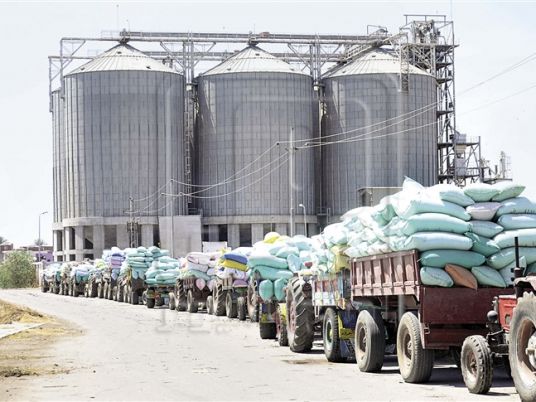
Egypt's Supply Minister said on Sunday a re-count of wheat in privately held silos would be finished in less than a month after an unusually high local procurement figure prompted fraud allegations from industry officials, traders and lawmakers.
Egypt, the world's largest wheat buyer, said in June that in the latest procurement season it bought nearly five million tonnes of local wheat from its farmers, the second highest figure on record and well above the three to 3.5 million tonnes per year farmers had delivered in the past decade.
Wheat millers and traders have told Reuters that the high figure was a result of private suppliers misreporting their stocks to collect government payments for highly subsidized local wheat not actually in their silos.
"We will finish the re-count of private sector silos in less than a month… it is impossible to re-count five million tonnes but we will take random samples in various places," Khaled Hanafi told Reuters.
Egypt's parliament on Wednesday set up a fact-finding commission to look into allegations of corruption in local wheat procurement.
If the local purchase numbers were misrepresented, Egypt may have to buy more foreign wheat to meet domestic demand while contending with a dollar shortage that has already sapped the country's import capability.
"There is no proof until now that there is a shortage of wheat but it is just a doubt that is present so let's wait for the result of the investigation," Hanafi said.
Hanafi has said no wheat would be withdrawn from private silos until the re-count was finalised.
Egypt contracts with private-sector suppliers to store and deliver wheat to government mills as the government lacks adequate capacity to stockpile the grain.
Hanafi said on Sunday his ministry was the entity that had alerted the general prosecutor to the potential violations and that it was fully cooperating with the fact-finding mission set up by parliament.
Still, a formal legal complaint, seen by Reuters, shows it was filed by a lawyer representing a group of businessmen in the grains industry in June to the general prosecutor.


